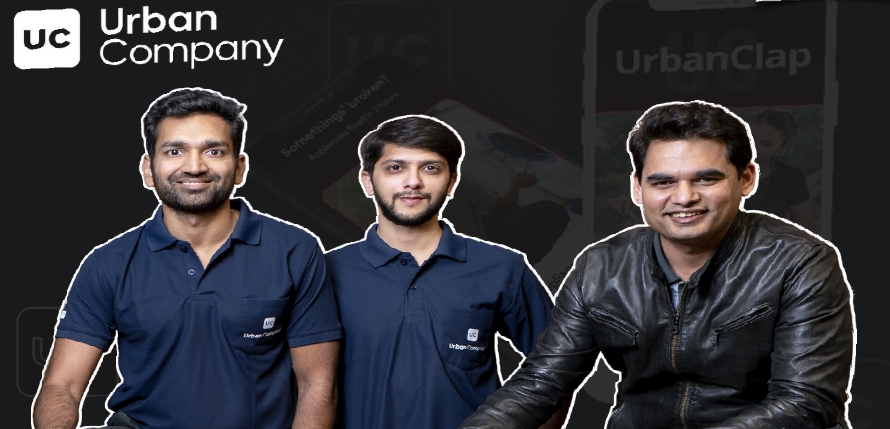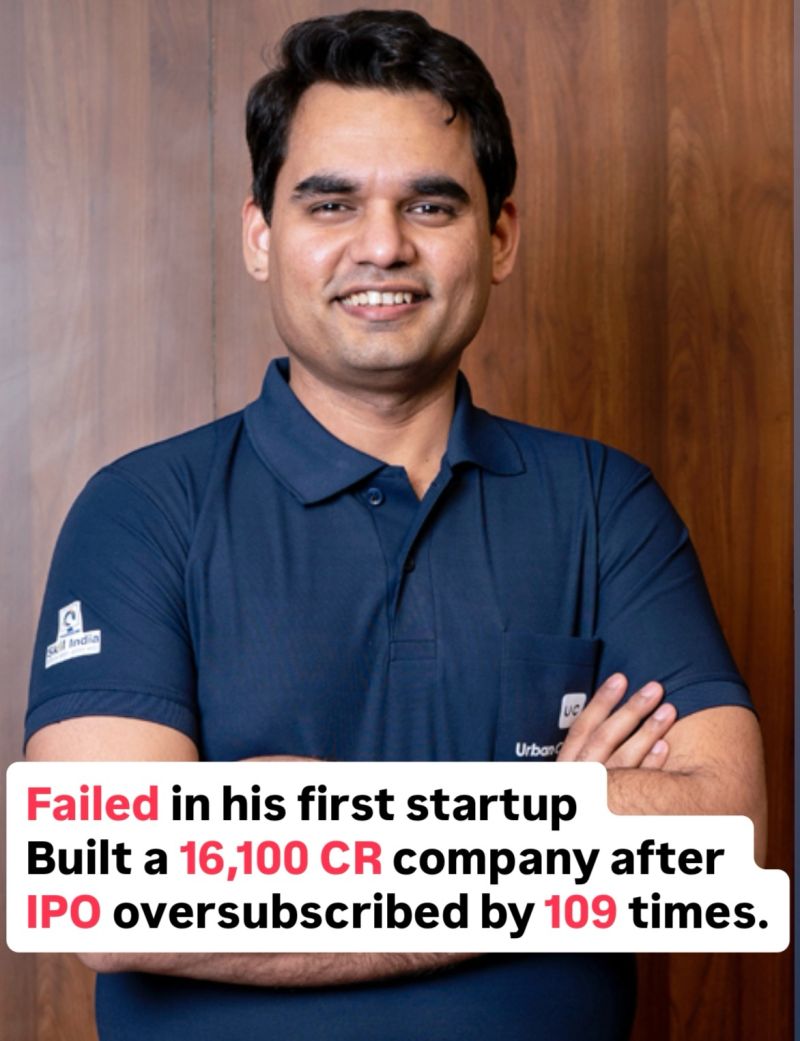Back
Siddharth K Nair
Thatmoonemojiguy 🌝 • 8m
How Urban Company is Organising India's Informal Service Sector🔥 Dive deep into the story of Urban Company, a startup tackling one of India's most complex challenges: organizing its vast informal service sector! India's Economic Backbone: The Informal Service Sector India is on a remarkable economic trajectory, recently becoming the world's fourth-largest economy and projected to be third by 2028. A staggering 54% of our ~$4.1 trillion economy (as of 2025) is driven by the service sector. But here’s the crucial part: within this sector, a massive 80% of the ~184 million workers operate in the informal economy. That's nearly 145 million people – the electricians, plumbers, domestic helps, beauticians, delivery personnel, and construction workers who are the unsung heroes of urban India. For decades, this vital workforce faced immense challenges: Disorganization: No standard pay, leading to exploitation by middlemen. Stagnant Incomes: Few opportunities for upskilling meant incomes rarely grew. Lack of Transparency & Trust: Middlemen controlled pricing, leaving both customers and service providers dissatisfied. This disarray created a frustrating experience for urban dwellers needing everyday services and a precarious livelihood for the providers themselves. The Genesis of Urban Company: Identifying a Billion-Dollar Problem While tech startups like Ola, Zomato, and Delhivery began organizing specific segments like ride-hailing and logistics, a huge swathe of the home services market remained untouched. This presented a massive opportunity. Enter Abhiraj Singh Bhal, Varun Khaitan, and Raghav Chandra. Abhiraj and Varun, IIT Kanpur classmates, returned to India in 2013, driven by a desire to solve significant problems back home. After a brief stint with a different venture, they realized their calling was to create a more substantial impact. They hit the streets, directly asking people about their everyday challenges. The consistent feedback? Dealing with home service providers was a major pain point. This insight, though daunting for two 27-year-olds, became their mission: to organize India's massive informal services sector. From Facebook Group to Full-Stack Solution Urban Company's journey began humbly in 2014 with a Facebook group where Abhiraj and Varun connected users with service providers for diverse needs – from printing business cards to carpentry. As demand surged, they met their tech-savvy co-founder, Raghav, and launched their website, UrbanClap, in November 2014 with 10 service categories. Early funding (Seed and Series A in 2015) fueled rapid expansion. However, they soon hit a critical realization: simply being a discovery platform wasn't enough. The core issues of unprofessionalism, lack of training, and price opacity persisted. This led to a pivotal business model shift. UrbanClap decided to go deep, starting with the women's beauty vertical. They addressed every pain point: Tools & Products: Built a supply chain. Financing: Helped professionals purchase quality products. Training: Established in-house training centers. This full-stack approach was a game-changer. Customer satisfaction and repeat rates soared, and skilled workers flocked to join. They had found their product-market fit. Growth, Rebranding, and New Frontiers By 2019, UrbanClap was a near-unicorn, prompting global ambitions. Rebranding to "Urban Company" for universal appeal, they expanded to UAE, Singapore, and other markets, though COVID-19 forced some international rollbacks. More recently, Urban Company has ventured into the home appliance market, leveraging its deep understanding of customer pain points. Their "Native" water purifier, with its promise of longer-lasting filters, is a prime example. This move into a ~$64 billion high-margin product segment could be crucial for their path to profitability and a potential IPO. Challenges Ahead Despite impressive growth, Urban Company faces hurdles: potential saturation in its core Indian markets, the need to successfully penetrate new service categories (like home renovation or elderly care), and stiff competition in the product segment from established giants and agile startups. 🌝👑
Replies (2)
More like this
Recommendations from Medial
Muttu Havalagi
🎥-🎵-🏏-⚽ "You'll N... • 1y
A college friendship between two IIT Kanpur friends resulted in the launch of a home service startup – achieved Rs 437.6 Cr operating revenue in FY22. Urban Company, formerly known as Urban Clap, has emerged as the largest home service provider in In
See More
Aditya Arora
•
Faad Network • 5m
Failed in his first startup, built a 16,100 CR company after, IPO oversubscribed by 109 times. 1. After completing his electrical engineering at IIT Kanpur and an MBA from IIM Ahmedabad, Abhiraj Singh Bahl began his career as a strategic consultant
See More
Pravesh Mourya
Young and energetic ... • 1y
Question of execution Why urban company is providing services by themselves and not making itself as a market place for services where service providers can list their services What's the reason behind it ? And can we make a marketplace for serv
See Moresharukh
Hey I am on Medial • 1y
Heyy everyone, This is my first post. I have a startup idea. A service connect platform which connects service providers and customers by our app. Service providers can sign up and register their services on our platform. Customers can search for the
See MoreRitesh Mishra
Hey I am on Medial • 1y
hey guys ! I am planning to make a platform which will organise the unorganised sector of gig workers. I am from Kanpur , UP. Many services like ac service , day labourers , masons ,lab tests , car service , bike service and many more. So I am plan
See MoreTanishq Patni
Hey I am on Medial • 11m
greeting to all I want to know about my ideas problem and the weak points It been a pleasure talking to you about the business opportunity which will revolutionize the informal job sector tremendously and help millions of people in search of thei
See MoreDownload the medial app to read full posts, comements and news.











/entrackr/media/post_attachments/wp-content/uploads/2021/08/Accel-1.jpg)





















